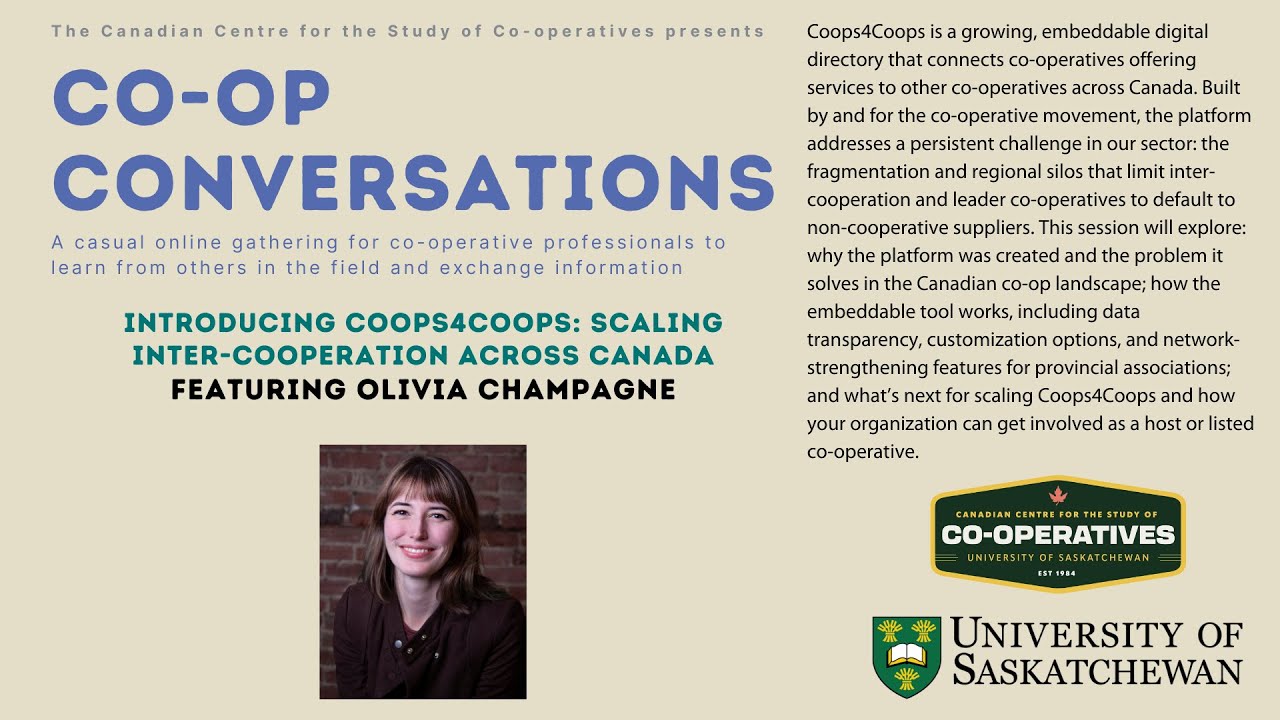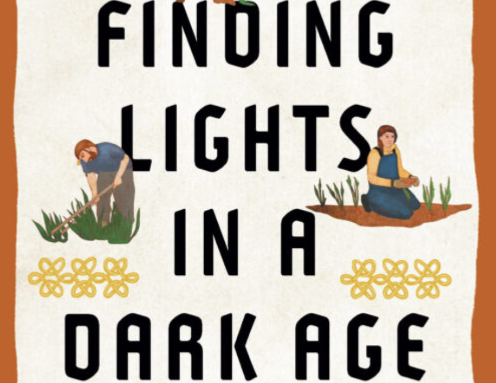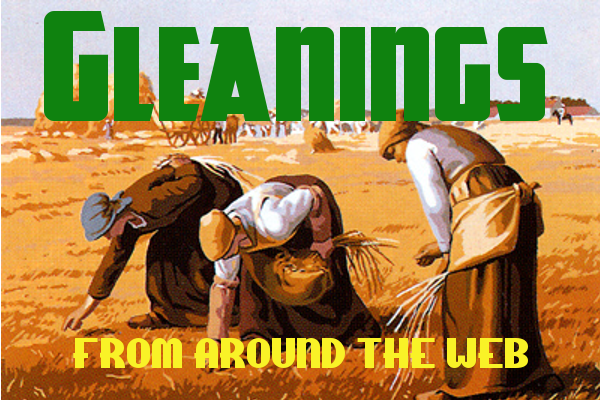This week Olivia Champagne joins the Canadian Centre for the Study of Co-operatives to introduce Coops4Coops, a digital directory of co-ops offering services to other co-ops across Canada.
Then David Bollier talks to Chris Smaje about his new book, Finding Lights in a Dark Age: Sharing Land, Work and Craft, which attempts to analyze how current social and political trends might play out in everyday life, and presents a post-capitalist vision of radical localism, small-scale farming, and bioregional commerce.
Introducing Coops4Coops
by Canadian Centre for the Study of Co-operatives
Coops4Coops is a growing, embeddable digital directory that connects co-operatives offering services to other co-operatives across Canada. Built by and for the co-operative movement, the platform addresses a persistent challenge in our sector: the fragmentation and regional silos that limit inter-cooperation and leader co-operatives to default to non-cooperative suppliers. This session will explore: why the platform was created and the problem it solves in the Canadian co-op landscape; how the embeddable tool works, including data transparency, customization options, and network-strengthening features for provincial associations; and what’s next for scaling Coops4Coops and how your organization can get involved as a host or listed co-operative.
Chris Smaje's Vision of a Post-Capitalist Eco-Localism that Works
by David Bollier
Smaje, a former sociologist at Goldsmiths, University of London, gave up life as an academic years ago to become a farmer and champion of agroecology in Somerset, England. A few years ago, he published A Small Farm Future, a book that explains the role of small farming in building stable, healthy local economies. He touts the virtues of distributed, local ownership of land, eco-minded community stewardship, and commons governance.
Brazil’s co-ops have big asks ahead of COP30
Co-op News — In March, the Brazilian Cooperative Organisation (OCB) published a COP30 Manifesto, after a series of conversations with member organisations and co-op leaders which started at the 15th Brazilian Cooperative Congress in 2024. The manifesto focuses on five key areas: food security, technology and low-carbon agriculture, valuing communities and climate funding; energy transition and sustainable development; bioeconomy as a development driver; and adaptation and mitigation of climate risks...
In the Year of the Cooperative, Rural Grocers Find Power in Partnership
The Packer — Many of the RGI [Rural Grocery Initiative] models, and similar ventures nationwide, embody cooperative principles, whether or not they’re formally structured as co-ops. They emphasize shared ownership, local investment and collective benefit, often bridging the gap between producers, processors and consumers. “Efficiency matters,” Carver says, “but what really drives resilience are the direct relationships between grocers and producers. Those partnerships allow these models to withstand challenges that would otherwise shut stores down.”...
Tool Libraries, Mutual Aid & Community-led Disaster Response
Give Lively — A panel of practitioners from tool libraries and mutual aid groups will discuss the intersection of resource sharing and mutual aid. This session will feature a particular focus on the role tool libraries can play during disasters, like last year’s collaboration between the Asheville Tool Library, WNC Repair Cafe, and Mutual Aid Disaster Relief during the response to Hurricane Helene in Western North Carolina...
Taking the Reins: Story Updates
Working Class Storytelling — Walworth County, Wisconsin: Last May, I connected with Kevon (who works in an oven factory), Sara (who works at a free clinic), and Tom (a pastor) to hear about their successful campaign to expand transportation services in their very rural Wisconsin county. Not only did they achieve their goal (to get the county-contracted van service to run on Sundays), but a new group grew out of their efforts. They call themselves the Groundswell Collective. “We realized the good we could do when working together,” Tom said...
Like what you find on GEO?
Make a Donation Today!
Your tax-deductible contribution ensures that GEO can continue to provide independent grassroots content about the cooperative and solidarity economy movements.
Got something to say?
Let us know. Send your comments, suggestions, rants and article submissions to editors@geo.coop.
Follow us on Social Media
Mastodon: social.coop/@GEO_Collective
BlueSky: @geocollective.bsky.social
FB: facebook.com/GEOCollective
Instagram: instagram.com/grassrootsecon
Our mailing address is:
Grassroots Economic Organizing
P.O. Box 115
Riverdale MD 20738-0115




